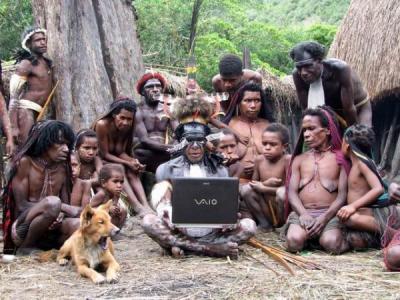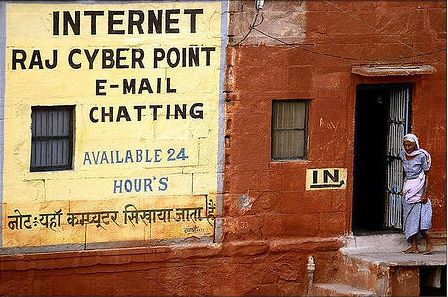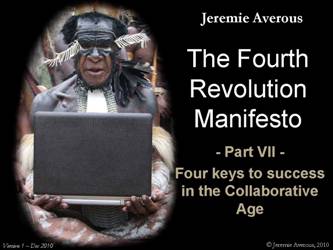One clear assumption of the Fourth Revolution Manifesto is that the Fourth Revolution will ultimately bring positive change to the world (the way to the Collaborative Age might however have some bumps). Quite a few reactions have been received that disagree with this assumption. So, the next few posts will cover the two main objections categories received. I expect that they will be the source of much heated debate! Anyway, thanks to those that have raised them as they fostered a lot of thoughts!
The two types of objections are basically the following:
- The present changes in the world only reinforce the influence of the current elite, and poor, underprivileged and fragile people will see their own personal situation worsen
- Big Brother is watching us: our interconnectivity opens the door to incredible access in our private lives, which could be exploited by evil groups, ultimately leading to a new era of general slavery
Let us dwell on the first objection. The second objection will be treated in the next post.
One source of the objection is that we can observe in our world today, in particular in developed countries, that certain fragile categories of the population, get even more fragile with the globalization and the general disappearance of low qualification industrial employment. Governments have financial problems and the social safety nets get less safe. The poor get poorer and the rich, richer.
Industrial employment is certainly disappearing and it is only a question of time until its share will diminish even in emerging countries. The problem with the fragile segment of the population of the developed countries is that it now competes worldwide for manufacturing jobs, which tends to lower the value share they can claim.
Does that mean that the people that thrive today will be the same than the ones that will lead the world tomorrow?
Historically during the Third Revolution, it did not happen. Apart from a few exceptions, aristocrats did not manage to make it in the leadership of the Industrial Age – although they would have had the time and the means to access the necessary knowledge. And instead a powerful ‘social elevator’ progressively brought a large segment of the poor farmers up in the social hierarchy – based on processing abilities leading to promotion in the mandatory public education system. Numerous current industry and political leaders come from families that were quite poor 2 or 3 generations ago.
Through the Fourth Revolution, apart from a few exceptions, the current elite will not make it into the new leadership, in spite of their available time and means, because they are in their comfort zone. A new ‘social elevator’, based on different skills than the Industrial Revolution’s, will operate. And new leaders will come from all segments of society – and more importantly, for the first time, from all ethnic and national origins.
So, yes, the segments of the population that rely on Manufacturing for their living will suffer, as the ones that relied on Farming did in the 19th and the early 20th centuries. Still, the opportunities will be here to move into the Collaborative Age value creation system.
Never had so many people so many opportunities to access to knowledge and education, to be connected to the world- in particular in emerging or developing countries. And they can all practice the necessary skills to become successful, part of tomorrow’s leadership.
As, overall, the value production will increase tremendously, so will ultimately the living condition of all.







 Einstein came out with the Theory of Relativity. Matter is now energy. Light is deviated by mass.
Einstein came out with the Theory of Relativity. Matter is now energy. Light is deviated by mass.